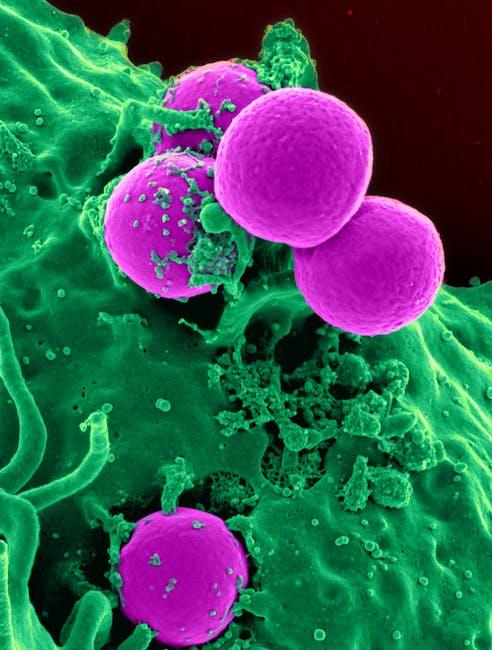
Red blood cells (RBCs) are an essential component of our blood, responsible for carrying oxygen from the lungs to the rest of the body. They are also responsible for removing carbon dioxide from the body and transporting it to the lungs, where it can be exhaled. The size of red blood cells can vary, and when they are larger than normal, it can indicate an underlying health issue. In this article, we will explore the causes and effects of large red blood cells, also known as macrocytosis.
Understanding the Causes of Large Red Blood Cells
There are several factors that can cause an individual to have larger than normal red blood cells. The most common cause of macrocytosis is a deficiency in vitamin B12 or folic acid. These two vitamins are essential for the production of healthy red blood cells, and a deficiency can lead to the production of abnormally large cells. Vitamin B12 is found in animal products such as meat, fish, and dairy, while folic acid is found in leafy greens, citrus fruits, and fortified grains. A diet lacking in these nutrients can lead to macrocytosis.
Another common cause of macrocytosis is alcohol abuse. Chronic alcohol consumption can lead to a deficiency in B vitamins, including B12 and folic acid, which can result in the production of large red blood cells. Additionally, alcohol can also affect the bone marrow, where red blood cells are produced, leading to the production of larger cells.
Certain medications, such as chemotherapy drugs, can also cause macrocytosis as a side effect. These drugs can interfere with the production of red blood cells, leading to the production of larger than normal cells. Other medical conditions, such as liver disease, hypothyroidism, and myelodysplastic syndromes, can also cause macrocytosis.
Understanding the Effects of Large Red Blood Cells
The effects of large red blood cells on the body can vary depending on the underlying cause and the severity of the condition. In some cases, macrocytosis may not cause any noticeable symptoms, while in other cases, it can lead to serious health issues.
One of the most common symptoms of macrocytosis is fatigue. This is because the larger red blood cells are less efficient at carrying oxygen, leading to decreased oxygen delivery to the body’s tissues. This can result in feelings of weakness and tiredness, as well as shortness of breath and dizziness.
In more severe cases, macrocytosis can lead to anemia, a condition characterized by a low red blood cell count. Anemia can cause symptoms such as pale skin, rapid heartbeat, and chest pain. In addition to anemia, macrocytosis can also increase the risk of developing blood clots, which can be life-threatening if they travel to the lungs or brain.
Furthermore, large red blood cells can also affect the way the blood flows through the body. The larger cells may not be able to pass through small blood vessels as easily as normal-sized cells, leading to a condition known as hyperviscosity. This can slow down blood flow, leading to complications such as stroke, heart attack, and circulation problems in the legs.
In addition to the physical effects, macrocytosis can also have psychological effects. The symptoms of fatigue and weakness can affect a person’s quality of life, leading to feelings of frustration, irritability, and depression.
Treatment for Large Red Blood Cells
The treatment for macrocytosis depends on the underlying cause of the condition. If the large red blood cells are due to a deficiency in vitamin B12 or folic acid, the treatment may involve dietary changes and supplementation with these vitamins. For individuals with alcohol-related macrocytosis, abstaining from alcohol and addressing any underlying liver issues may be necessary.
In cases where macrocytosis is caused by medications or underlying medical conditions, the treatment will be focused on addressing the root cause of the condition. This may involve adjusting or discontinuing medications, treating underlying medical issues, or addressing any nutritional deficiencies.
It’s important for individuals with macrocytosis to work closely with their healthcare provider to determine the underlying cause of their condition and establish an appropriate treatment plan. In some cases, additional testing, such as blood tests, bone marrow aspiration, or imaging studies, may be necessary to identify the cause of macrocytosis.
Prevention of Large Red Blood Cells
Preventing macrocytosis involves maintaining a healthy and balanced diet that includes adequate amounts of B vitamins, particularly B12 and folic acid. Consuming a variety of foods, such as lean meats, fish, fruits, vegetables, and whole grains, can help ensure that the body receives the nutrients it needs to produce healthy red blood cells.
For individuals who consume alcohol, moderation is key to preventing alcohol-related macrocytosis. Limiting alcohol consumption and seeking help for alcohol abuse can help prevent the development of macrocytosis and other alcohol-related health issues.
Additionally, it’s important to be aware of any medications that may cause macrocytosis as a side effect. If you are taking medications that may lead to large red blood cells, speak with your healthcare provider about potential alternatives or strategies for mitigating the effects of the medication.
In conclusion, large red blood cells, or macrocytosis, can be caused by a variety of factors, including nutritional deficiencies, alcohol abuse, medications, and underlying medical conditions. The effects of macrocytosis can range from mild symptoms such as fatigue to more serious complications such as anemia and hyperviscosity. Treatment for macrocytosis depends on the underlying cause of the condition and may involve dietary changes, supplementation, and addressing any underlying medical issues. Prevention of macrocytosis involves maintaining a healthy diet, avoiding excessive alcohol consumption, and being aware of the potential side effects of medications. Working closely with a healthcare provider is essential for managing macrocytosis and preventing potential complications.


















